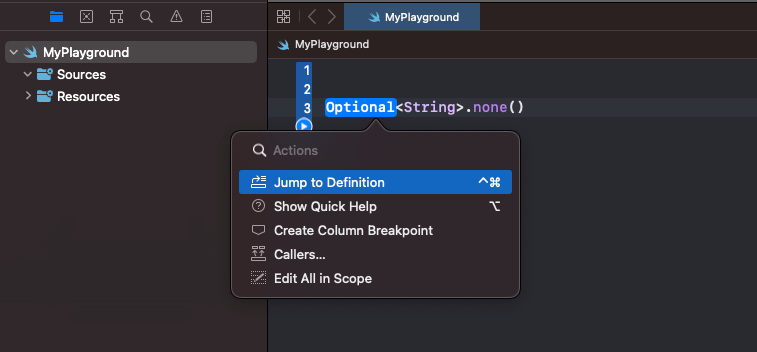2 Minute Tips: The Dark Secret of Optionals
They aren't what you think.
Psst! Come here, I’ll let you in on a secret.

Question marks, exclamation marks, chaining, coalescing? Optionals must be some Swift language magic, right?
You couldn’t be further from the truth. Open Xcode and type this in:
Optional<String>.none()Now, quick, before anyone sees you!
CMD+Click on the word Optional. Press enter.

Like breaking out of the Matrix, we finally see the code that makes up our world — the world of the the Swift Standard Library. The source code for Optional.
@frozen
public enum Optional<Wrapped>: ExpressibleByNilLiteral {
case none
case some(Wrapped)
}Your whole life was a lie.
Optionals were a 2-case enum the entire time.
It’s true.
Optionals are just part of the Swift Standard Library.
The ?, !, and ?? you know and love?
Syntax sugar, my friend.
As fentanyl is to heroin; the ? syntax gives a stronger kick at a much lower dose than Optional<String>. The Swift Compiler metabolises it into the same end product: Getting high on type-safe nullability.
Let’s end with a use case for this forbidden knowledge.
Imagine you need to store a flag in User Defaults, or, heaven forbid, the Keychain, to signify whether the user has been through your app onboarding.
Your navigation logic might look like this:
if let hasSeenOnboarding = UserDefaults.standard.value(
forKey: "hasSeenOnboarding"
) as? Bool,
!hasSeenOnboarding {
showOnboarding()
}
} else {
showOnboarding()
}With an explicitly typed optionals, you can simply write:
if UserDefaults.standard.value(
forKey: "hasSeenOnboarding"
) != Optional<Bool>.some(true) {
skipOnboarding()
}p.s. yes, I know that
bool(forKey:)exists on UserDefaults already.

